Discovering the Essence of Planet Surf Camps
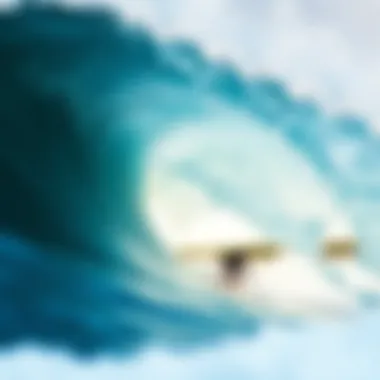
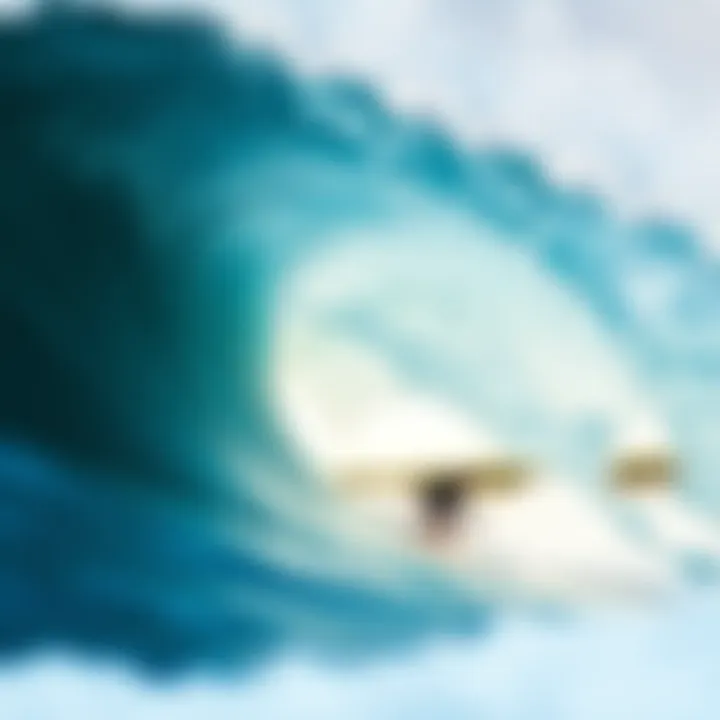
Intro
The allure of the ocean, the thrill of carving through waves, and the camaraderie among fellow surfers—these are just a few aspects that make surf camps an enticing venture for anyone looking to enhance their skills and soak up the surf culture. Planet Surf Camps represent a vibrant community where individuals from different walks of life come together to embrace the sport of surfing. Here, surfers can experience a melting pot of backgrounds and skills that is, quite simply, unmatched.
When diving into the world of surf camps, one might wonder about what to expect. From surfboard selection to choosing the right camp, this guide aims to cover the essentials that make your surfing journey enriching and rewarding. Whether you’re a greenhorn looking to catch your first wave or a seasoned rider hoping to polish your skills, a surf camp has something unique to offer everyone.
In this exploration of Planet Surf Camps, we will touch upon the types of camps available, necessary gear, skill development techniques, and the dynamics between participants. More than just a place to learn, surf camps serve as hubs for building lasting friendships and sharing unforgettable experiences. Ready to ride the wave of knowledge? Let’s plunge deeper into the essentials.
Understanding Planet Surf Camps
The concept of Planet Surf Camps holds a vital position within the surfing community, catering to the diverse needs and aspirations of surfers. Whether someone is just dipping their toes into the surfing world or looking to refine their skills, these camps provide a structured environment that combines education with adventure. The importance of surf camps extends beyond simply catching waves; they are spaces for learning, network-building, and cultural exchange.
What Are Planet Surf Camps?
Planet Surf Camps are focused environments where participants can immerse themselves in the surf culture while receiving instruction tailored to their skill level. Typical offerings include various forms of coaching, ranging from basic techniques for beginners to advanced maneuvers for seasoned surfers. These camps often take place in picturesque locations, combining fun with functionality. For many, the idea of becoming adept at riding the surf serves as the anchor for lifelong memories and friendships.
The Evolution of Surf Camps
Surf camps have come a long way since their inception. Initially, they were informal gatherings among friends or small groups on remote beaches, where learning was mostly trial and error. Over the years, thanks to growing interest in surfing and the establishment of a global surf culture, surf camps have transformed into well-organized events that include professional instruction, accommodation, and community-building activities. They’ve evolved into more than just a place to learn; they now represent a lifestyle and a community of like-minded individuals united by their passion for the ocean.
Types of Surf Camps
When it comes to selecting a surf camp, different offerings cater to varying demands. Here’s a breakdown of some popular options:
Beginner Courses
Beginner courses are essential for newcomers looking to take their first steps on a surfboard. These courses focus on foundational skills such as paddle techniques, balance, and understanding ocean conditions. What makes beginner courses particularly appealing is the supportive environment created by instructors who are often attuned to the challenges first-timers face.
The standout feature of these courses is their often flexible structure, accommodating individuals with different comfort levels. This flexibility enables participants to progress at their own pace without feeling pressure. Though they may seem basic, these skills provide the groundwork for a successful surfing journey.
Advanced Training
For those who have honed their skills and are eager to up the ante, advanced training offers a tailored approach to refining technique. This type of camp emphasizes specific aspects like wave reading, aerial maneuvers, and competitive strategies. Here, experienced surfers find value in learning from pros and can gain insights into their performance.
One notable aspect of advanced training is the community of peers—it’s a melting pot of talented surfers, which fosters a competitive yet collaborative spirit. However, it’s worth noting that participants should bring foundational skills to the table, as the instruction can be rapid-fire, pushing limits in a high-energy environment.
Family-Friendly Options
For families wanting to introduce their kids to surfing, family-friendly options are a win-win. These programs typically cater to all ages, offering activities suited for both adults and children.
What distinguishes family-friendly surf camps is their ability to create shared experiences in a safe environment. Parents can join lessons alongside their kids, promoting teamwork and bonding. However, the focus on fun should not come at the cost of less intensive training; thus, balancing leisure with learning is crucial in these scenarios.
Specialized Skill Workshops
Specialized skill workshops zero in on particular techniques or niche styles of surfing—be it longboarding, shortboarding, or even surf photography. These workshops are particularly beneficial for surfers wanting to deepen their expertise or explore a new facet of the sport.
Their uniqueness lies in the specialized knowledge imparted by focused instructors who often have vast experience or accomplishments in their particular area. While incredibly rewarding, these workshops may be less suited for beginners and are typically tailored for surfers who have already established some competence.
The landscape of surf camps is rich and varied, catering to diverse needs and preferences. Whether you are trying to get your feet wet or looking to hone your skills further, understanding the different types of surf camps available helps in making an informed choice.
Core Benefits of Participating
When one thinks of a surf camp, thoughts often drift to sun-soaked beaches, powerful waves, and the thrill of riding the ocean. However, the heart of participating in a surf camp extends far beyond the thrill of mastering a wave. It presents a unique opportunity to grow in skill, foster connections, and immerse oneself in diverse cultures. As surfers, whether seasoned or new, embracing these benefits enhances not only your surfing journey but also enriches your entire life experience.
Skill Development and Instruction
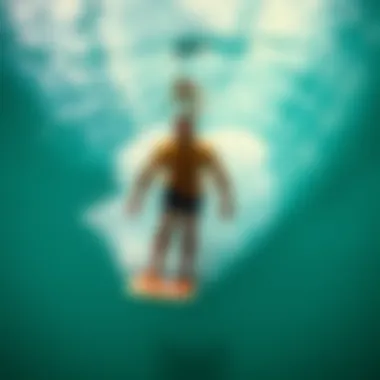
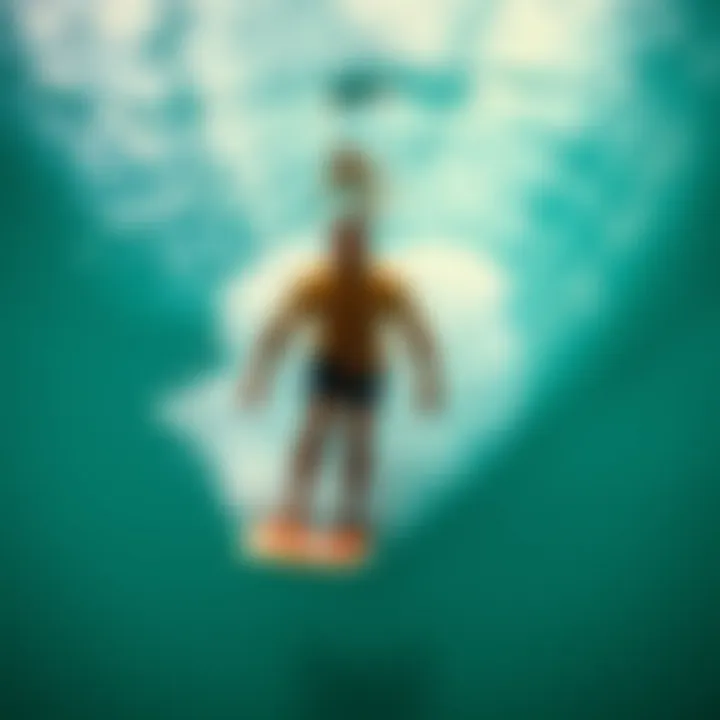
Surf camps are specially designed to provide tailored instruction that caters to various skill levels. From eager beginners who have never touched a surfboard to seasoned surfers looking to sharpen their techniques, there’s a training approach suited for everyone. Engaging with experienced instructors can significantly accelerate skill acquisition, as they offer personalized feedback, correcting potential mistakes before they become habits. The focus on practical skills allows for growth in a supportive environment where learning happens.
Additionally, many camps utilize video analysis, letting you see your performance from a different perspective. This innovative approach helps surfers understand their body movements and paddling techniques with greater clarity. Thus, skill development at surf camps is not just about jumping on a board; it’s a structured learning experience that ensures participants come away with a solid foundation and new techniques to refine their skill.
Community and Networking Opportunities
In addition to skills, surf camps act as a melting pot for people passionate about surfing. The bonds created in this setting often extend beyond the waves, leading to a sense of belonging that many may find lacking in daily life. The friendships are genuine. They arise from shared experiences and struggles, like the thrill of a perfect wave or the challenge of wiping out.
Building Lasting Friendships
This is where the magic of surf camps lies – the friendships that last a lifetime. Participants share laughs, fails, and successes, forging connections that stretch far beyond the surf. The warmth of camaraderie among surfers often leads to communal dinners or late-night bonfires, sharing stories about the day's sessions. It's these moments that help many realize their love for the sport, finding kindred spirits who fuel their passion. Having a network of friends who share this interest can create motivation and accountability, encouraging participants to engage with the sport long after leaving the camp.
Connecting with Instructors and Experts
Another essential aspect is the opportunity to connect with instructors and industry experts. Many camps feature instructors who have rich histories in surfing, sometimes at elite levels. Learning from them beats watching instructional videos from your couch. Instructors bring personal anecdotes, professional insights, and valuable tips to the table that can deepen your understanding of the sport. It’s a chance to ask questions in real-time and receive feedback tailored specifically to you.
Whether discussing technique, surf gear, or competing, these engagements can open doors for future opportunities, including mentorships or even introductions to surf competitions and events. The connections made can lead to adventures you never dreamed possible, all because of the relationships formed during a camp.
Cultural Exposure
An often underestimated benefit of surf camps is the chance for cultural immersion. Surfing is a language of its own, spoken in various dialects globally. Camps situated worldwide expose participants to local cultures, traditions, and unique surfing styles that deepen their appreciation for the sport.
Local Traditions and Practices
Every region has its own surf culture colored by local traditions. Learning about these practices allows surfers to respect and engage with the local community meaningfully. From understanding specific etiquette in the water to participating in local ceremonies or events, being open to these customs broadens one's worldview and appreciation for the ocean. Surf camps often encourage cultural exchange, which inspires joy and connection among participants.
Understanding Global Surf Culture
Diving deeper, gaining an overview of global surf culture enriches the experience. Surfing reflects a broader lifestyle, embodying an ethos that encompasses environmental consciousness, community spirit, and adventure. By participating in a camp, surfers can grasp how these values differ around the world. Meeting like-minded individuals who push the envelope of exploration can ignite a new fire for the sport and create a sense of unity among surfers worldwide.
Overall, engaging with surf camps leads to personal growth, new friendships, and an invaluable understanding of surfing as a global culture that connects people. It’s a journey that offers growth not just in skill but in various dimensions of life.
Choosing the Right Camp
Selecting the ideal surf camp can be a game changer for your surfing journey. The right camp fits your skill level, aligns with your goals, and enhances your overall experience. Whether you're just starting or looking to sharpen your skills, making an informed choice brings a world of difference.
Evaluating Your Skill Level
Every surfer starts somewhere. Knowing your skill level is crucial when choosing a camp. Many camps have different programs tailored to beginners, intermediates, and advanced surfers. If you're new to surfing, it's wise to look for camps that offer comprehensive beginner courses. These classes include one-on-one instruction and the chance to learn in a supportive environment. On the flip side, if you've been riding waves longer, look for advanced training that focuses on refining techniques and tackling more challenging conditions.
Location Considerations
Prospective Surf Spots
When it comes to surf camps, the destination can make or break the whole experience. Popular surf spots like Waikiki Beach in Hawaii or the beaches of Baja California are famous for a reason. They offer consistent waves and stunning scenery. The unique feature of these locations is their reliable surf conditions, which are especially beneficial for learning and practicing.
However, just because these spots are well-known doesn’t mean they are the only options. Sometimes you stumble upon lesser-known gems that provide fewer crowds and an intimate surf experience. Make sure to weigh the benefits and drawbacks, as a quiet beach could also mean limited amenities.
Travel Accessibility
Travel accessibility is another factor that shouldn’t be neglected. The ease of getting to the surf camp can influence your decision. Camps near major airports or main transport routes tend to be more convenient. This means less time spent on the road and more time in the water. However, a camp tucked away in a secluded location also has its charm. It offers an escape from the hustle and bustle of city life, contributing to a more immersive experience.
That being said, remote locations often come with their own set of challenges, such as limited transport options and longer travel times. Balancing accessibility with experience is key when considering where to go.
Camp Duration and Schedule
Weekend Retreats


Weekend retreats are ideal for those crunched for time. They provide a quick escape to recharge and dial in your surfing skills without the commitment of a week-long stay. These short but intensive programs can often lead to significant improvements and are very popular among busy professionals and students alike. Just be prepared for a fast-paced experience, as every moment counts!
Week-Long Expeditions
For those looking to dive deep into the surfing experience, week-long expeditions offer a more comprehensive approach. This time frame allows for a blend of skill development and relaxation. You can immerse yourself in surf culture while enjoying the social aspects of the camp. The challenge here, of course, is finding the time away from other obligations, but many find the lengthiness beneficial for building true surfing abilities.
Customizable Packages
Customizable packages are the cherry on top for surfers wanting a tailored experience. These options allow participants to choose specific classes, accommodation types, and meal plans that suit their needs. This flexibility is perfect for those who might have specific goals, whether it’s improving a technique, exploring new spots, or even a family trip that incorporates surfing lessons for different family members. They provide the chance to create a unique experience, but it’s essential to check what's included to avoid surprises.
"Choosing the right surf camp isn't just about surfing; it's about finding a place that resonates with your vibe. "
In summary, finding the right surf camp hinges on several personal considerations, such as your skill level, the location, and what duration works best for your schedule. Taking the time to evaluate these aspects will ensure that you have a rewarding experience at your camp.
Camp Logistics and Preparations
Having a solid grasp of camp logistics and preparations can make or break your surf camp experience. This part of the journey involves planning and organization, which directly impact your ability to enjoy the waves. Proper logistics can help minimize stress and maximize fun, allowing participants to dive into the essence of surfing without worrying about the nitty-gritty details. By understanding what to pack, choosing the right accommodation, and keeping health precautions in mind, surfers can focus on honing their skills and soaking up the vibrant atmosphere that surf camps provide.
What to Pack
Packing wisely for a surf camp is an art in itself. You want to make sure you bring all essentials without overpacking. Think about items that make your life easier and safer while you're catching those swells. Here’s a shortlist:
- Surfboard and Equipment: If you're serious about surfing, it’s best to bring your own surfboard. Don't forget a leash and wax.
- Wetsuit or Swimwear: Depending on the climate, you'll want the right gear to keep you warm and comfortable.
- Sunscreen: Protect your skin from the sun’s harsh rays. A high SPF and waterproof option is ideal.
- Rash Guard or Surf Shirt: These can help prevent chafing and provide extra sun protection.
- Towel and Change of Clothes: After a day on the waves, a clean towel and dry clothes can feel heavenly.
- Personal Care Items: Bring any toiletries you usually need, plus things like first-aid supplies and medications.
Being prepared will allow you to fully immerse yourself in the surfing experience without worrying about forgetting something important.
Accommodation Options
Understanding the various accommodation options available is crucial to enhancing your overall surf camp experience. The comfort and environment where you rest each night play a significant role in your ability to recover and get ready for more surfing the next day.
Camping vs. Lodging
One of the first decisions to make is whether to camp or stay in a more traditional lodging situation. Camping offers a unique, close-to-nature experience that can enhance your surf trip. You’ll wake up to the sounds of the ocean, surrounded by the beauty of nature. On the flip side, lodgings provide more comfort and amenities, which can be great after a long day of surfing.
- Key Characteristic:
- Benefits:
- Camping connects you to the outdoors, giving a sense of adventure.
- Lodging often includes conveniences that make your stay easier, such as housekeeping and meals prepared for you.
- Camping is popular among younger surfers or those who want to engage with other camp goers in a more communal style.
- Lodging might appeal to those looking for a restful retreat before hitting the waves again.
Shared vs. Private Facilities
Choosing between shared and private facilities can further impact your surf camp experience. Shared accommodations can foster camaraderie and are often more budget-friendly. They'll allow you to socialize more and exchange surfing stories with fellow participants.
- Key Characteristic:
- Benefits:
- Shared facilities create a warm, friendly atmosphere, as you can meet people from different backgrounds.
- Private facilities give you your own space, providing how much personal downtime you will need after a day of action in the water.
- Shared options often encourage group dynamics, where you can bond over shared experiences.
- Private facilities, meanwhile, allow you a sanctuary to recharge, especially if you’re someone who values alone time to reflect on your day.
Safety and Health Precautions
Prioritizing safety and health precautions before and during the surf camp is paramount. With all the splashing and excitement, you want to ensure you’re prepared to tackle any obstacles smoothly. Surfers should be aware of local conditions, such as rip currents, and familiarize themselves with proper surf etiquette to keep everyone safe. In addition, remember to stay hydrated and nourish your body with wholesome food. Proper health precautions will help you catch those waves worry-free.
The Social Dynamics Within Camps
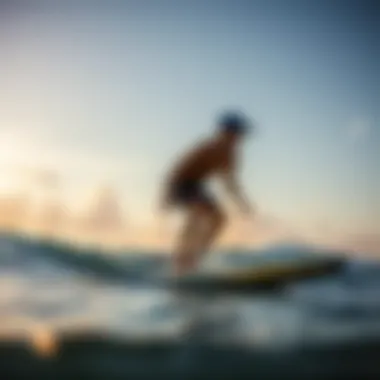
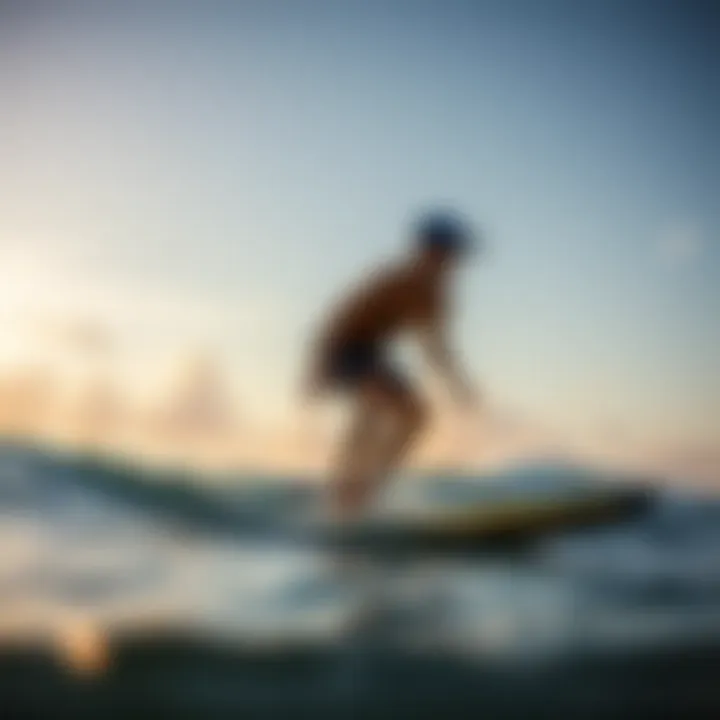
Understanding the social dynamics at Planet Surf Camps brings a new dimension to the surf experience. The interplay among participants, instructors, and the structure of activities can significantly enhance one’s journey, both on the water and off. Building relationships, finding camaraderie, and engaging in team activities not only helps in skill-building but ultimately cements memories that many will hold dear. This social fabric is what transforms a simple surfing lesson into a community centered around the love of waves.
Interactions among Participants
At surf camps, participants range from eager novices to seasoned surfers. This diversity creates a rich environment for interaction. A beginner might find themselves sitting next to a more experienced surfer during meals or wind down on the beach together after a long day on the waves. These natural encounters foster an atmosphere of shared learning and support, encouraging individuals to push their boundaries. Surfers often gather around the evening fire or during group dinners, swapping stories and tips, which is crucial in building friendships that can last beyond the camp itself.
Sharing moments of triumph—like standing up on a board for the first time—creates bonds. Surfing, after all, is not just about the thrill of catching waves; it’s about experiencing the journey together. As someone once said, "You don’t just ride the waves; you share the ride."
Instructor-Student Relationships
The dynamic between instructors and students at surf camps plays a pivotal role in the overall experience. Instructors serve not only as coaches but also as mentors who inspire surfers to cultivate their unique style and overcome challenges. This mentorship can be particularly beneficial because it instills confidence in students. With their guidance, individuals can navigate through fears and uncertainties that these ocean journeys often evoke.
Students should feel comfortable asking questions and seeking advice. Many instructors are former competitive surfers or have deep ties to the local surf culture, making their insights invaluable. The rapport built during camp can evolve into long-lasting connections, where students may return to learn from the same instructors on future trips, creating a cycle of progression and nurtured skills.
Group Activities and Team Building
Group activities are not just about having fun; they are fundamental to the experience at surf camps. Designed to promote teamwork, these activities often include competitions, beach cleanup days, or even bonfire discussions beneath the stars. Engaging in these activities teaches participants about cooperation and accountability, as they learn how to work together to accomplish shared goals.
Moreover, team-building exercises improve communication skills, which are essential both in the water and during social interactions. As surfers learn to recognize how to read each other’s signals when catching a wave, they also become more attuned to their peers’ emotions and needs.
Post-Camp Reflections and Next Steps
Reflecting on your experiences after attending a Planet Surf Camp is a crucial component of the journey. It’s often said that learning doesn’t stop when the camp ends. In fact, the real enrichment may just begin after the last wave has been surfed. Understanding what you’ve gained and how to build on it can set the tone for your future endeavors in surfing, whether you aim to ride bigger waves or simply enjoy the ocean with friends and family.
Skills Retention and Practice
After a surf camp, many participants feel invigorated and full of newfound skills. However, retaining those skills requires consistent practice. It’s easy to forget the techniques learned as everyday life resumes its normal pace. Here are some strategies to ensure skills stick:
- Private Practice: Find a local surf spot to keep your skills sharp. Regular practice helps solidify muscle memory, making movements feel natural.
- Buddy Up: Surfing with friends who also attended the camp can create a supportive environment. You can remind each other of the techniques and tips learned during the camp.
- Video Review: Tap into technology. Recording your surfing sessions allows you to reflect on your form and technique, making it easier to identify areas needing improvement.
- Set Goals: Establish short and long-term surfing objectives. This keeps your motivation high and gives you a framework for assessing progress.
"A surfer’s best friend is not just the board but also the perseverance that follows each wave they conquer."
Continued Engagement with the Surf Community
One of the most rewarding aspects of participating in a surf camp is the community built during that time. Maintaining those relationships can go a long way. Here’s how you can keep riding the wave of camaraderie even post-camp:
- Join Local Clubs: Many surf communities have clubs or organizations where surfers gather. These groups often host events, competitions, and social gatherings.
- Social Media Connections: Platforms like Facebook or Instagram can help you stay connected. Share your surfing experiences, post photos, and even organize meet-ups.
- Workshops and Events: Look for local workshops or surf competitions you can attend. They offer a chance to learn while seeing familiar faces.
- Online Forums: Engaging in discussions on websites like Reddit can provide a wealth of information and introduce you to fellow surfers worldwide.
By reflecting on your camp experience and actively engaging with the surf community, you not only enhance your own skills but also contribute to a vibrant culture. This devotion ensures that surfing becomes more than just a hobby; it turns into a lifestyle and a lifelong journey.
Culmination: The Future of Surf Camps
As the wave of popularity for surf camps continues to rise, understanding the future of these experiences is paramount. With the ocean as both a backdrop and a teacher, surf camps are not just about catching the perfect wave. They represent a convergence of education, community, and adventure. The significance of exploring what lies ahead allows surfers—both prospective and seasoned—to align their passions with emerging trends and technologies.
Emerging Trends in Surf Camp Experiences
In the surf camp landscape, innovation is surfacing at an unprecedented pace. Some key shifts on the horizon include:
- Eco-Conscious Initiatives: Many camps are incorporating sustainability into their operations. From using biodegradable products to minimizing plastic waste, there's a significant push towards environmental stewardship.
- Holistic Surfing Retreats: Participants are increasingly seeking a balance between surfing and wellness. Future camps might incorporate yoga sessions, mindfulness practices, and healthy eating to enhance the overall experience.
- Diverse Programs: Representation matters, and surf camps are becoming more inclusive. Programs aimed at underrepresented groups are gaining traction, offering unique perspectives and fostering a sense of belonging.
The potential for surf camps to adapt and grow with these trends is rich. When surfers engage with these innovations, it enhances not only their surfing skills but also their connection to the wider surfing community.
How Technology is Shaping Surf Education
Technology is a game changer in surf education, and it's hard to ignore its influence. A couple of noteworthy advancements include:
- Online Learning Platforms: Now surfers can access instructional videos, guides, and live classes right from their devices. This flexibility allows for individualized learning whenever and wherever it fits their schedule.
- Virtual Reality Training: Imagine putting on a VR headset and experiencing surf sessions in scenarios around the world! This technology enables beginners to practice techniques in simulated environments before catching real waves.
- Data Analytics: As surf coaching evolves, so does its reliance on data. Coaches can now analyze surfers’ techniques down to their rotation and wave selection, ensuring systematic improvements.
Embracing these technologies will not only modernize surf education but also empower surfers of all skill levels to enhance their experiences and performance.
The future is bright for surf camps, filled with sustainable practices and technological advancements that marry tradition with innovation.
In summation, the future of surf camps holds great promise, with the potential to transform and elevate the surfing experience. By staying attuned to these emerging trends and leveraging technology, surfers can forge deeper connections, embrace new challenges, and ultimately ride the wave toward a cohesive community built on shared passions.







